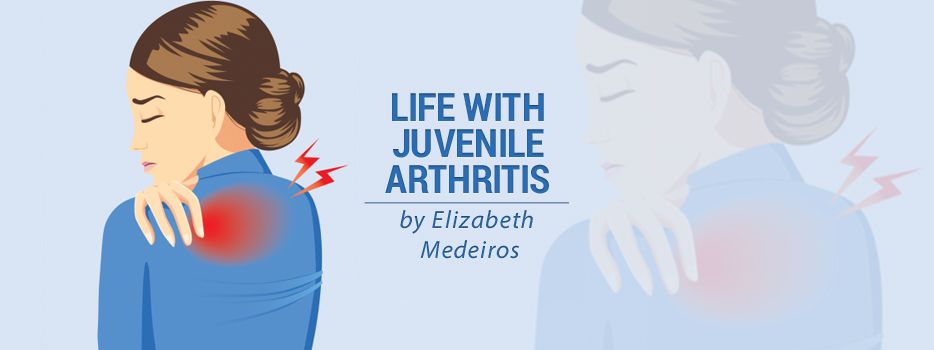Being a teenage girl in the body of an old lady is rough.
Between day-to-day choices and upcoming life decisions, we often feel like we can’t win. Do we overextend ourselves and create an excellent résumé but deal with flares and being continuously run-down? Or should we put our health first but miss out on school activities and fun with peers?
For teens and young adults with juvenile arthritis, it’s hard to balance “I can’t let this illness control my life” and “I need to listen to my body.” But for optimal mental and physical health, it’s crucial to find a balance of both.
Both sides of the coin
Some people will disagree with me about the two sides of this coin. Some will argue that we need to push past the pain and have a life that is as “normal” as possible. Others will say it’s critical to put our health first at all times, even if it means giving up dreams and ambitions.
Both of these points are necessary, and they balance each other out. We cannot live well without knowing our boundaries, and we cannot know our boundaries without testing them a little and following our passions.
Acknowledging limitations is not giving up
Frankly, there will be things that are just impossible for people with JA to do, and it varies from person to person. But please don’t confuse acknowledging one’s limits with giving up or being lazy. Knowing our health’s limits and respecting them gets us further in life than pushing beyond our limits and quickly burning ourselves out again and again.
It’s important not to assume we automatically can’t do something because of JA. I’ve always found it more encouraging to try something and discover that it’s not for me rather than tell myself it’s impossible.
When I was in high school and thought I would become a nurse, going through a crash course quickly showed I couldn’t handle the demands of the job. Experiencing it firsthand helped me gracefully accept that I would need to choose a different career.
Young people with arthritis need to be able to discover their limits for themselves. And importantly, once they’re discovered, they need to be respected. It’s not that we shouldn’t encourage someone to try new things or achieve things, but rather it’s essential to recognize that achievement in careers and education may not come in the way one might imagine.
Living on both sides
I don’t often talk about this for fear of sounding dramatic. But I admit that there have been plenty of times when I’ve struggled to get by day to day, to the point that I considered quitting and giving up everything I had worked hard for. I often get to that place after pushing my limits a little too far, too many times. But two things get me through those times.
The first is that I’ll put down firm boundaries about what is and isn’t possible for me at the time. Disrespecting my boundaries won’t help me recover, and it’ll prevent me from achieving anything.
The second one is that I do things I have passion for. I can keep working because I love the things I do, even when they sometimes require testing my limits. These include writing, designing, teaching, crocheting, and working with others.
***
Note: Juvenile Arthritis News is strictly a news and information website about the disease. It does not provide medical advice, diagnosis, or treatment. This content is not intended to be a substitute for professional medical advice, diagnosis, or treatment. Always seek the advice of your physician or other qualified health provider with any questions you may have regarding a medical condition. Never disregard professional medical advice or delay in seeking it because of something you have read on this website. The opinions expressed in this column are not those of Juvenile Arthritis News, or its parent company, BioNews, and are intended to spark discussion about issues pertaining to juvenile arthritis.

